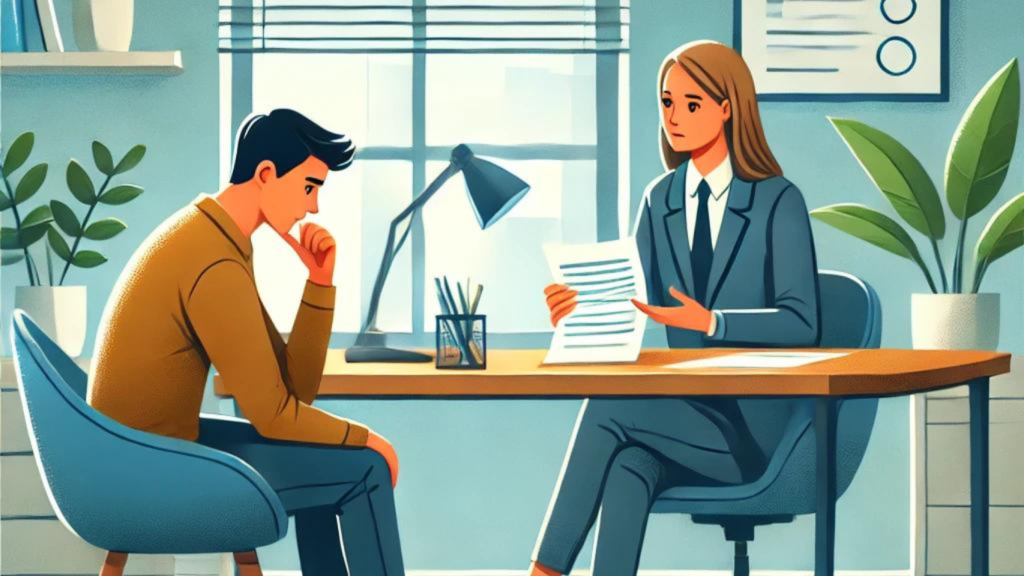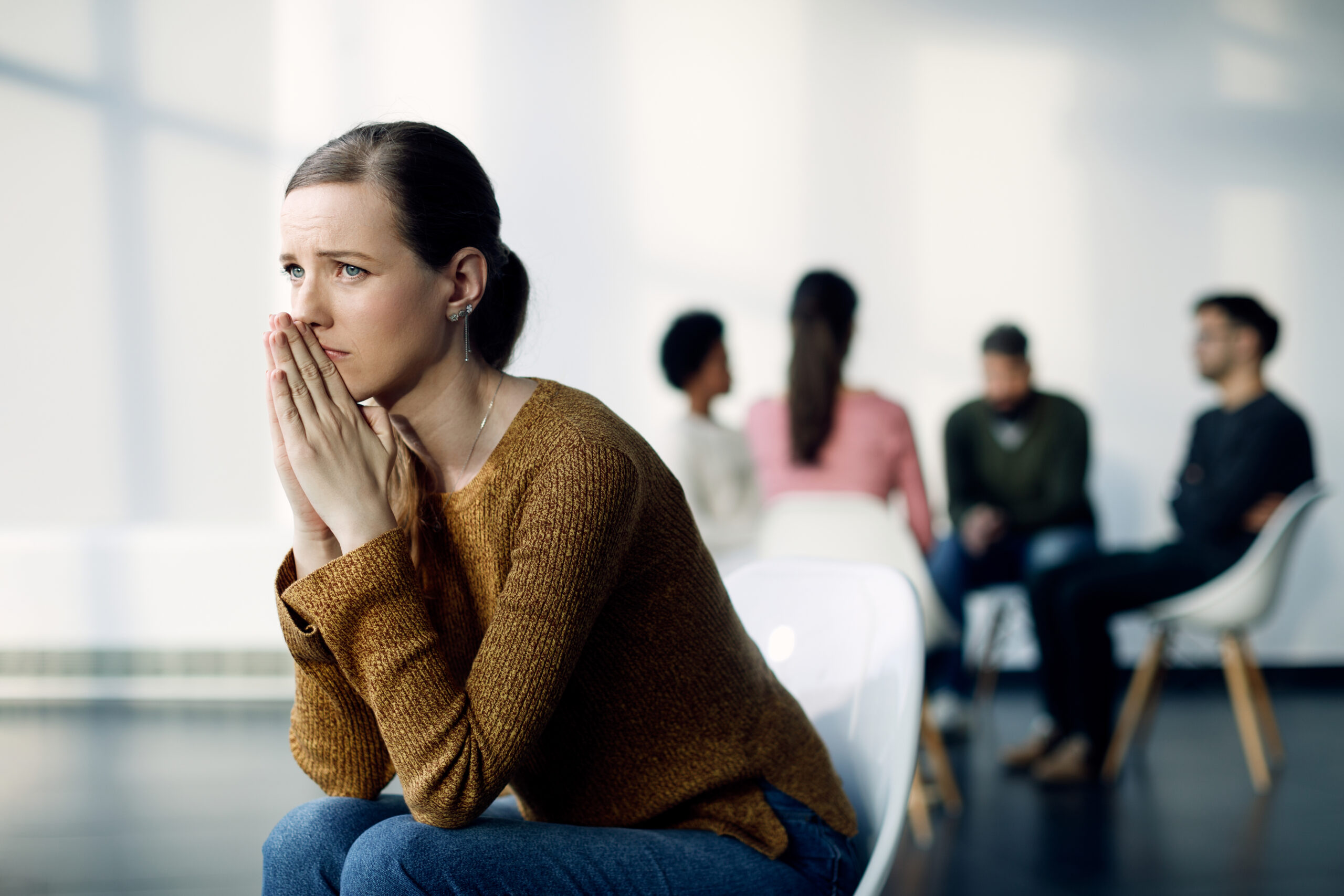Social anxiety, a prevalent mental health disorder affecting millions worldwide, raises a critical question: is social anxiety a disability? This question carries weight for those seeking recognition, support, and accommodations to help manage their condition. This Post, we will explore the nature of social anxiety, its impact on daily life, its recognition as a disability, and ways to seek support.
Social Anxiety
Social anxiety disorder, often referred to simply as social anxiety, is characterized by an intense fear of social interactions. This fear can stem from a worry about being judged, embarrassed, or scrutinized by others. Symptoms of social anxiety range from physical manifestations, such as sweating and trembling, to psychological effects like avoidance of social situations and good fear.
Social anxiety is distinct from general anxiety, as it is situation-specific. While people with general anxiety may feel anxious in a broad range of scenarios, those with social anxiety typically experience symptoms during specific interactions such as public speaking, meeting new people, or even routine social events like dining in public.
Causes of Social Anxiety
The exact causes of social anxiety are multifaceted. Genetic factors may predispose individuals to develop the disorder, as research suggests that social anxiety can run in families. Environmental factors, such as childhood trauma, bullying, or overprotective parenting, also play a role. Psychological factors like negative thinking patterns, low self-esteem, and heightened sensitivity to criticism can contribute to the development and maintenance of social anxiety.
Social Anxiety in Daily Life
The impact of social anxiety on daily life can be profound. For some, it affects their ability to maintain relationships, as the fear of rejection or judgment might lead to avoidance of social interactions. In the workplace, social anxiety can limit career growth by hindering participation in meetings or presentations. Furthermore, students with social anxiety may struggle academically due to avoidance of group activities or classroom participation.
Is Social Anxiety Recognized as a Disability?
In the United States, the Americans with Disabilities Act provides protection for individuals with disabilities, including mental health conditions like social anxiety disorder, under certain circumstances. The ADA defines a disability as a physical or mental impairment that substantially limits one or more major life activities. For social anxiety to be considered a disability, it must severely impact the individual’s ability to perform everyday functions such as communication, work, or education.
While social anxiety is not always automatically recognized as a disability, in cases where the condition is severe enough to hinder daily functioning, it can be classified as one. This recognition allows individuals to seek workplace accommodations and educational support.
Diagnosis and Treatment
To diagnose social anxiety disorder, healthcare professionals use specific criteria outlined in the Diagnostic and Statistical Manual of Mental Disorders. These criteria include a persistent fear of one or more social situations, avoidance of social interactions, and symptoms that interfere with daily functioning.
Fortunately, social anxiety is treatable. Cognitive-behavioral therapy is a highly effective method, helping individuals change their negative thought patterns and develop coping skills. In some cases, medication such as selective serotonin reuptake inhibitors may also be prescribed. Additionally, self-help strategies like mindfulness and gradual exposure to feared situations can aid in overcoming social anxiety.
Social Anxiety and Disability Benefits

For individuals whose social anxiety severely impairs their ability to work or function, applying for disability benefits may be an option. In the U.S., the Social Security Administration provides benefits to individuals with mental disorders, including social anxiety, if they meet specific eligibility criteria. Applicants need to provide evidence of the severity of their condition and how it limits their ability to engage in substantial gainful activity.
Coping with Social Anxiety
Managing social anxiety requires a combination of strategies. Daily practices such as relaxation techniques, deep breathing exercises, and positive self-talk can help alleviate anxiety symptoms. Building resilience through gradual exposure to social situations is another effective approach. Developing social skills can boost confidence and reduce fear over time.
Success Stories: Living with Social Anxiety
Despite the challenges, many people with social anxiety have successfully managed their condition and achieved personal and professional goals. With the right support and coping strategies, individuals with social anxiety can lead fulfilling lives, proving that a diagnosis is not a life sentence.
Myths and Misconceptions about Social Anxiety
A common misconception is that social anxiety is merely shyness. In reality, anxiety is a clinical disorder that can have a significant impact on daily life. Debunking such myths is essential to reducing stigma and encouraging more individuals to seek help.
Conclusion
Living with social anxiety may come with its challenges, but it is possible to thrive with the right tools and support. Whether or not anxiety is classified as a disability, individuals with this condition deserve understanding, accommodations, and the chance to live a full, meaningful life.
FAQs
1. Can social anxiety be considered a disability?
Yes, if it significantly impairs a person’s ability to function in daily life.
2. What are the common symptoms of social anxiety?
Symptoms include excessive fear of social situations, avoidance, sweating, trembling, and rapid heartbeat.
3. How is social anxiety diagnosed?
Diagnosis is based on criteria in the DSM-5, including persistent fear and avoidance of social situations.
4. Can you receive disability benefits for social anxiety?
Yes, if social anxiety severely impacts your ability to work or function in daily life, you may qualify for benefits.
5. Is there a cure for social anxiety?
While there is no cure, social anxiety can be effectively managed with therapy, medication, and coping strategies.

